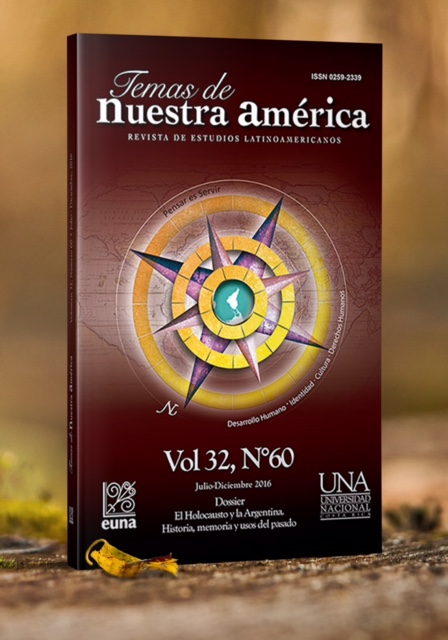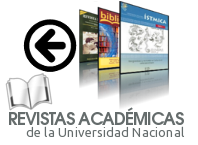The Use of the Past During the Last Military Dictatorship and Post-Dictatorship: The Holocaust as the Horizon of Identification, Alienation and Negotiation for the Jewish Community
DOI:
https://doi.org/10.15359/tdna.32-60.7Palabras clave:
Holocaust, Latin American dictatorships, military regime in Argentina, Jews, Jacobo Timerman, memory and the past, historiography of ArgentinaResumen
We live in an era in which the Holocaust has become a universal trope of historic trauma. The Nazi genocide has come to be known as the greatest disaster of civilization and, as such, simply mentioning it or comparing it to other repressive events stirs or blocks meanings about specific events. In the case of Argentina, the resonance of the memory of the Holocaust penetrated the origins of the most recent military dictatorship. As early as the year 1976, external voices that denounced the regime for perpetrating genocide were heard publically around the world. This article analyzes some uses of the Holocaust during the military dictatorship in Argentina, questioning the ways in which the memory of the Holocaust stirred or blocked feelings and the collective imagination on the repressive regime's practices.
Referencias
Adamoli, María Celeste (ed.). (2014). Holocausto y genocidios en el siglo XX. Preguntas, respuestas y propuestas para su ense-anza. Buenos Aires: Ministerio de Educación de la Nación Argentina. Disponible en: <http://repositorio.educacion.gov.ar/dspace/handle/123456789/110039>.
Cardona González, Lorena. (2015). Sobre ciertas cosas que no se pueden nombrar. La Representación del Holocausto en Colombia (1976-2015). Tesis de Maestría. Universidad Nacional de La Plata.
Gleizer, Daniela. (2015). Gilberto Bosques y el Consulado de México en Marsella. La burocracia en tiempos de guerra (1940-1942). Estudios de Historia Moderna y Contemporánea de México, 49, 54-76.
https://doi.org/10.1016/j.ehmcm.2014.12.002
Huyssen, Andreas. (2002). En busca del futuro perdido. Cultura y memoria en tiempos de globalización. México: Fondo de Cultura Económica.
Klich, Ignacio & Buchrucker, Cristian. (2009). El fin del Tercer Reich y la "conexión argentina" en la bibliografía revisionista. En Klich & Buchrucker (Ed.). Argentina y la Europa del nazismo: sus secuelas (pp. 247-352). Buenos Aires: Siglo XXI.
Meding, Holger M. (1999). La ruta de los nazis en tiempos de Perón. Traducción de Lucía de Stoia. Buenos Aires: Emecé Editores.
Descargas
Publicado
Cómo citar
Número
Sección
Licencia
Esta obra de Revista Temas de Nuestra América está bajo una Licencia Creative Commons Atribución-NoComercial-SinDerivar 4.0 Internacional.
Cualquier permiso que trascienda dicha licencia, debe solicitarse por escrito a la persona directora de la Revista










